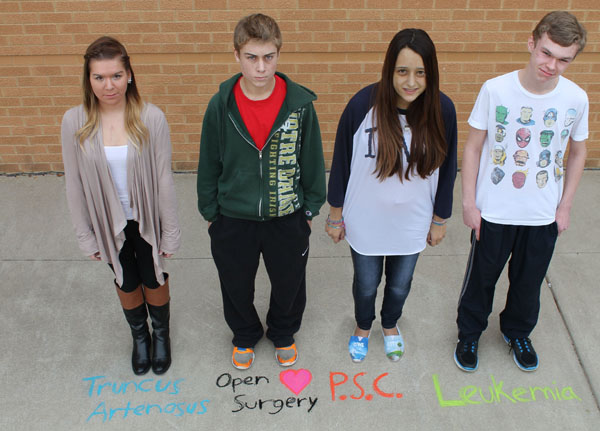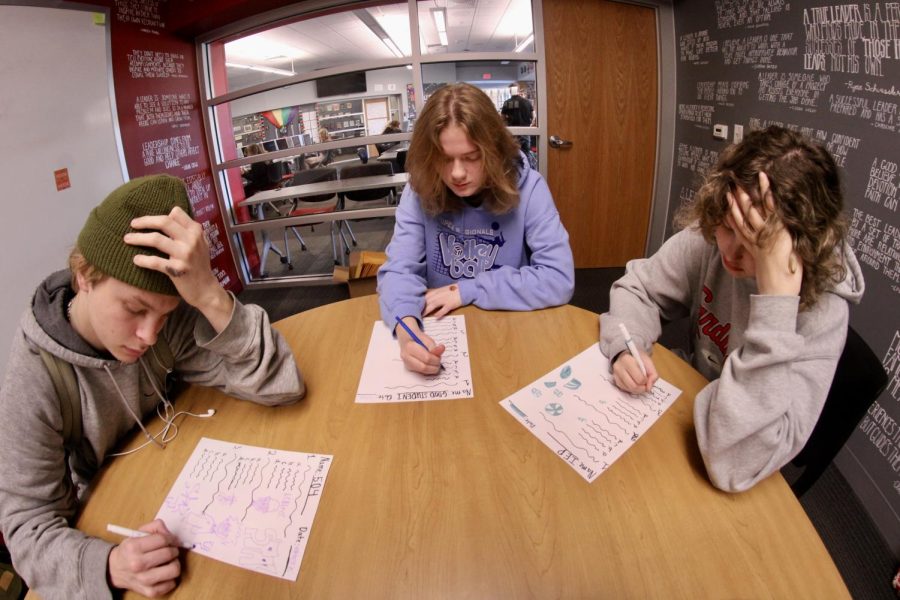When Dr. David Super heard his daughter Gabi’s diagnosis of Primary Sclerosing Cholangitis, he reacted on two different levels: that of a father and of a doctor.
“It was especially jarring and very sad for me because I didn’t have just a father’s perspective,” David said. “I already knew what the diagnosis meant, so it was even scarier.”
David was familiar with Gabi’s rare condition, which affects one in 10,000 adults and just one in 100,000 children. The disease has a challenging prognosis, causing deterioration of the bile ducts that eventually leads to liver failure. The only cure is a liver transplant.
In addition to sclerosing cholangitis, Gabi, junior, suffers from ulcerative colitis, inflammation in the intestines. While it is relatively manageable, it causes additional pain and discomfort.
Gabi was diagnosed with both of these conditions in fifth grade when she went to see her pediatrician for stomach pain and was put on a medication usually used to treat indigestion issues such as acid reflux. The medicine did not help, so Gabi was sent to a specialist at St. John’s Mercy.
She underwent various tests to discover what the issue was, including several exploratory surgeries in which tissue samples were taken from various organs to be tested. Gabi remembers spending a great deal of time in the hospital and constantly getting blood drawn.
“It was scary but I had good doctors, and I knew they would figure it out,” Gabi said.
After Gabi was finally diagnosed, she began seeing two different specialists at St. Louis Children’s Hospital, and her doctors put her on several medications.
“The medicine was my least favorite part because they had to sort of just play with it until it worked,” Gabi said. “One of the pills they had me taking at one point was a steroid, and it actually ended up making things worse for me. But after all of that got figured out it was much better.”
Along with her diagnosis, Gabi realized she would not be able to continue living her life as she had before the illnesses. In addition, Gabi’s medicine often resulted in mood swings that made it difficult for her to maintain a positive attitude.
“I remember being really upset when I realized I wasn’t going to be allowed to play soccer anymore,” Gabi said. “I was just frustrated because I was starting to see that there was so much I wanted to do that I just couldn’t.”
Last December, six years after her diagnosis, Gabi’s ulcerative colitis began acting up. She said she experienced constant pain and exhaustion and could not focus in her classes. Suddenly, she found herself facing a surgery to have her gallbladder removed over winter break to slow down the damage to her liver.
Following the surgery, Gabi was homeschooled for six months, and now she is currently on a transplant list. Right now, Gabi said it is simply a matter of waiting until she has an available donor.
“It’s nerve-wracking waiting,” Gabi said. “I’m somebody who likes to organize. I like to know dates and specifics, and being on the list, it [the transplant surgery] could happen any time. I never know when, and that makes me really nervous about it. But at the same time it’s a relief because I know there will be a fix eventually.”
Gabi is on the regional list for the Missouri area, and her family is considering applying for the list in Chicago, as well. Patients can be placed on any list they would like, but they must be then prepared to go to that city immediately if and when an organ becomes available.
Gabi currently attends two classes a day at KHS and when she ca she goes into Vista, but the majority of her classes are online. While missing school may seem like a plus for some, Gabi said that as a student who has always enjoyed learning it is very frustrating.
Gabi has two younger brothers, a 10-year-old at Nipher and a 15-year-old at KHS. They have also been affected by her condition as Gabi has been through periods where she was in and out of hospitals a lot, and being on a transplant list keeps the family constantly vigilant.
“They understand the situation,” David said. “They understand she has a life-threatening illness, and that’s hard enough for me and my wife to face, but I can’t even begin to imagine how that is for a young person.”
Despite the challenges she faces on a daily basis, Gabi manages to excel in school and even made it into the National Honor Society this year. Even though it is for Gabi to do a lot because she feels drained of energy as her need for a liver transplant grows, she still tries to carry on her normal life as much as possible.
Gabi’s father often feels frustrated by the unfairness of her condition. David describes a feeling of helplessness, as he says he would give his liver for her life, but in reality there is nothing anyone can do until a donor becomes available.
“Never once has she expressed anger or asked ‘Why me?’ and I probably do that every day,” David said. “She is my inspiration. She is the most unbelievable person, and that’s saying something because being in medicine I’ve met some pretty miraculous people. She leads the pack.”










